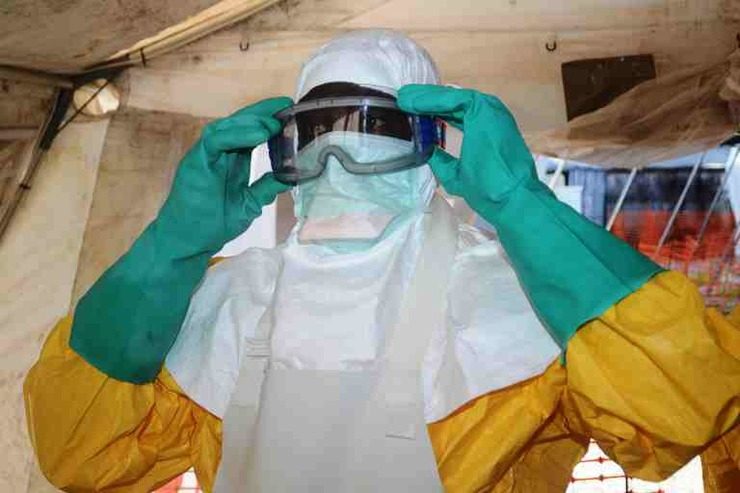SUMMARY
This is AI generated summarization, which may have errors. For context, always refer to the full article.

ACCRA, Ghana – The United Nations (UN) reassured west Africa on Wednesday, July 2, that the world’s deadliest-ever Ebola epidemic could be stopped in its tracks, telling the region’s health ministers: “We can handle this.”
The highly-contagious tropical bug has infected hundreds of people in Guinea, Liberia, and Sierra Leone, with the latest World Health Organization (WHO) figures showing confirmed or suspected cases had left 467 people dead.
The new toll represented a rise of 129 – or 38% – since the UN agency’s last bulletin given just a week ago.
“These kinds of outbreaks, these diseases, can be stopped,” Keiji Fukuda, assistant director-general for health security at the WHO, told AFP, as 11 west African health ministers gathered for a two-day conference in Accra on combatting the killer pathogen.
“This is not a unique situation – we have faced it many times – so I’m quite confident that we can handle this.
“This is, however, the most complicated Ebola outbreak ever because it is spreading so fast in both urban and rural areas.”
Since the region’s first ever epidemic of the deadly and highly contagious fever broke out in Guinea in January, the WHO has sent in more than 150 experts to help tackle the regional crisis.
Despite the efforts of the UN agency and other health workers, there has been a “significant increase” in the rate of new cases and deaths in recent weeks, the organization added.
Medical charity Doctors Without Borders, known by its French initials MSF, said last week that the spread of the virus, which has had a mortality rate of up to 90% in previous outbreaks, was “out of control”, with more than 60 outbreak hotspots.
The WHO has warned that Ebola could spread to other countries, warning those hardest hit could struggle to contain the disease.
The agency’s top Ebola specialist Pierre Formenti told AFP last month that the recent surge in cases had come in part because efforts to contain the virus had been relaxed too quickly after the outbreak appeared to slow down in April.
Unstoppable bleeding
Ministers from Guinea, where 413 confirmed, suspected and probable cases have surfaced so far including 303 deaths, and Liberia, which has seen 107 cases and 65 deaths, are at the meeting.
Sierra Leone, which has recorded 239 cases and 99 deaths, is also represented.
In addition, officials from Ivory Coast, Mali, Senegal, Gambia, and Guinea-Bissau, along with Ghana and countries as far afield as Uganda and the Democratic Republic of Congo are attending.
They have been joined by a host of UN agencies and other aid organisations, including MSF and the Red Cross, as well as personnel from disease control centres in western Africa, the United States, Britain and the European Union.
Liberia’s Deputy Health Minister Bernice Dahn told AFP relief efforts were being hampered by a lack of awareness of the disease among traditional communities and stricken villages hiding victims.
“We need to galvanise the local leaders, the people believe their leaders better than us, the health workers… because there are a lot of traditional beliefs,” she said.
“People don’t even believe Ebola exists and that is helping to spread the disease,” she added.
Meanwhile Sierra Leone’s President Ernest Koroma said in a televised broadcast on Wednesday, July 2, that anyone who “harbors an Ebola victim without notifying health authorities” was breaking the law and would be punished.
The WHO has described the current Ebola epidemic as one of the most challenging since the virus was first identified in 1976 in what is now DR Congo.
That outbreak – the deadliest until this year – killed 280 people, according to WHO figures. Ebola can fell its victims within days, causing severe fever and muscle pain, weakness, vomiting, and diarrhea – in some cases shutting down organs and causing unstoppable bleeding.
No specific medicine or vaccine exists for the virus, which is named after a small river in the DR Congo. – Rappler.com
Add a comment
How does this make you feel?
There are no comments yet. Add your comment to start the conversation.